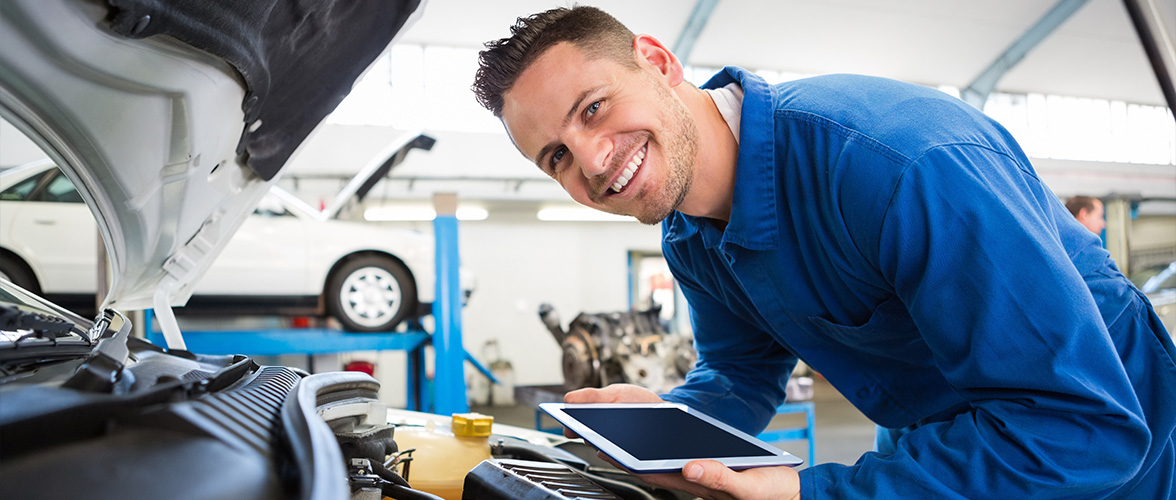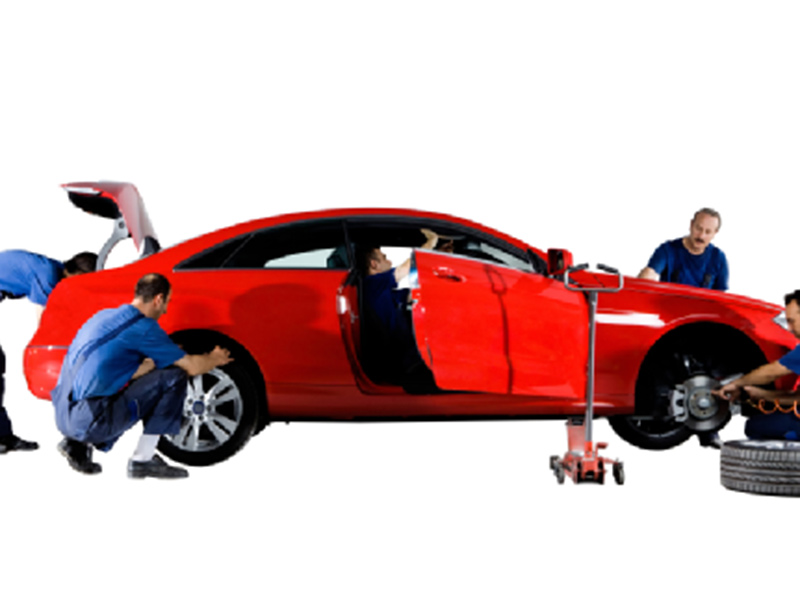All Categories
Featured
When your vehicle overheats, it can seem like a significant emergency situation, but staying tranquil and adhering to the appropriate steps can stop severe engine damages and help get you back when traveling securely. In this message, we'll discover what to do if your vehicle overheats and supply preventative tips to reduce the threat of overheating in the future.
What to Do If Your Car Gets too hot. Pull Over to a Safe Place The very first and crucial action if your car begins to overheat is to pull over to a safe place asap. Turn on your risk lights and guide your lorry to the shoulder or into a parking area. Keeping your auto running while it's overheated can cause severe damages to the engine, so it's essential to close the engine off today.
Let the Engine Cool Down Once you've securely stopped, enable the engine to cool. You need to never attempt to open up the radiator cap while the engine is still hot, as the launch of steam or warm coolant can trigger burns. Wait a minimum of 15-20 minutes to enable the engine temperature level to go down to a much safer degree prior to proceeding.
![]()
Examine the Coolant Degree After the engine has cooled, check the coolant degrees by checking the reservoir or radiator. If it's reduced, top it off with a mixture of coolant and water (as defined by your vehicle's producer) Always make use of care when opening up the coolant storage tank, as pressure may have built up.
Try To Find Visible Leaks While you wait for the engine to cool down, aesthetically examine the radiator, pipes, and coolant tank for any type of noticeable leakages or fractures. A dripping radiator or pipe is an usual reason of getting too hot. If you find a substantial leakage, it's far better to call a tow service than threat driving additionally and creating additional damage.
Reboot the Engine After enabling the engine to cool down and ensuring the coolant is topped off, begin the engine and monitor the temperature level scale. If the temperature level proceeds to increase swiftly, it's best to close the engine off and require roadside aid or a tow to the closest mechanic.
![]()
Just How to Avoid Getting Too Hot in the Future. Routinely Examine Coolant Degrees One of the most convenient methods to avoid getting too hot is by keeping the best degree of coolant. Gradually, coolant can vaporize, so regularly check the coolant degrees in the reservoir. Low coolant degrees can trigger the engine to overheat rapidly, so top it off as required.
Check the Radiator The radiator plays a critical function in maintaining the engine cool. Occasionally check the radiator for any obstructions, dust, or particles that might block air movement. If you see any indications of damages, such as corrosion or leakages, have it repaired or replaced as quickly as possible.
Change the Thermostat and Water Pump A malfunctioning thermostat or water pump is a typical root cause of overheating. The thermostat manages the flow of coolant, while the water pump circulates it with the engine. If either part is faulty, it can protect against proper air conditioning. Have your mechanic evaluate these parts routinely and change them when required.
Flush the Air conditioning System Gradually, coolant can break down and come to be ineffective, creating a buildup of particles in the system. Purging the air conditioning system every 30,000 miles, or as recommended in your vehicle's manual, helps to eliminate any sludge or buildup and makes certain the cooling system is operating properly.
Screen the Condition of the Hoses The tubes in your car's cooling system can wear out or crack gradually. Evaluate the hoses for any kind of indications of wear, such as bulging, fractures, or leaks, and replace them if required. Protecting against coolant leaks can go a long way in staying clear of getting too hot.
![]()
Drive Properly Aggressive driving, such as accelerating promptly or driving at broadband, puts additional stress on your engine and its cooling system. Try to drive at moderate rates, especially on hot days or when driving on steep slopes, to decrease the opportunities of overheating.
Stay Clear Of Overwhelming Your Car Carrying excessive weight in your car places anxiety on the engine and cooling system. Constantly bear in mind your lorry's weight restriction, especially if you're transporting hefty loads, lugging a trailer, or driving cross countries in warm weather condition.
Conclusion. A getting too hot automobile can be a frightening experience, but understanding exactly how to react and stop it can conserve you time, cash, and possible engine damage. Always examine your coolant levels, evaluate vital parts like the radiator, thermostat, and tubes, and follow a normal maintenance routine. By remaining on top of your car's cooling system, you can reduce the threat of getting too hot and appreciate a smoother, safer driving experience.
What to Do If Your Car Gets too hot. Pull Over to a Safe Place The very first and crucial action if your car begins to overheat is to pull over to a safe place asap. Turn on your risk lights and guide your lorry to the shoulder or into a parking area. Keeping your auto running while it's overheated can cause severe damages to the engine, so it's essential to close the engine off today.
Let the Engine Cool Down Once you've securely stopped, enable the engine to cool. You need to never attempt to open up the radiator cap while the engine is still hot, as the launch of steam or warm coolant can trigger burns. Wait a minimum of 15-20 minutes to enable the engine temperature level to go down to a much safer degree prior to proceeding.

Examine the Coolant Degree After the engine has cooled, check the coolant degrees by checking the reservoir or radiator. If it's reduced, top it off with a mixture of coolant and water (as defined by your vehicle's producer) Always make use of care when opening up the coolant storage tank, as pressure may have built up.
Try To Find Visible Leaks While you wait for the engine to cool down, aesthetically examine the radiator, pipes, and coolant tank for any type of noticeable leakages or fractures. A dripping radiator or pipe is an usual reason of getting too hot. If you find a substantial leakage, it's far better to call a tow service than threat driving additionally and creating additional damage.
Reboot the Engine After enabling the engine to cool down and ensuring the coolant is topped off, begin the engine and monitor the temperature level scale. If the temperature level proceeds to increase swiftly, it's best to close the engine off and require roadside aid or a tow to the closest mechanic.

Just How to Avoid Getting Too Hot in the Future. Routinely Examine Coolant Degrees One of the most convenient methods to avoid getting too hot is by keeping the best degree of coolant. Gradually, coolant can vaporize, so regularly check the coolant degrees in the reservoir. Low coolant degrees can trigger the engine to overheat rapidly, so top it off as required.
Check the Radiator The radiator plays a critical function in maintaining the engine cool. Occasionally check the radiator for any obstructions, dust, or particles that might block air movement. If you see any indications of damages, such as corrosion or leakages, have it repaired or replaced as quickly as possible.
Change the Thermostat and Water Pump A malfunctioning thermostat or water pump is a typical root cause of overheating. The thermostat manages the flow of coolant, while the water pump circulates it with the engine. If either part is faulty, it can protect against proper air conditioning. Have your mechanic evaluate these parts routinely and change them when required.
Flush the Air conditioning System Gradually, coolant can break down and come to be ineffective, creating a buildup of particles in the system. Purging the air conditioning system every 30,000 miles, or as recommended in your vehicle's manual, helps to eliminate any sludge or buildup and makes certain the cooling system is operating properly.
Screen the Condition of the Hoses The tubes in your car's cooling system can wear out or crack gradually. Evaluate the hoses for any kind of indications of wear, such as bulging, fractures, or leaks, and replace them if required. Protecting against coolant leaks can go a long way in staying clear of getting too hot.

Drive Properly Aggressive driving, such as accelerating promptly or driving at broadband, puts additional stress on your engine and its cooling system. Try to drive at moderate rates, especially on hot days or when driving on steep slopes, to decrease the opportunities of overheating.
Stay Clear Of Overwhelming Your Car Carrying excessive weight in your car places anxiety on the engine and cooling system. Constantly bear in mind your lorry's weight restriction, especially if you're transporting hefty loads, lugging a trailer, or driving cross countries in warm weather condition.
Conclusion. A getting too hot automobile can be a frightening experience, but understanding exactly how to react and stop it can conserve you time, cash, and possible engine damage. Always examine your coolant levels, evaluate vital parts like the radiator, thermostat, and tubes, and follow a normal maintenance routine. By remaining on top of your car's cooling system, you can reduce the threat of getting too hot and appreciate a smoother, safer driving experience.
Latest Posts
Unlock WyHy FCU – Top Benefits for Your Money Goals
Published May 19, 25
2 min read
Discover WyHy Federal Credit Union – Essential Perks for Your Money Goals
Published May 18, 25
1 min read
Seamless Aluminum Gutters: The Smart Selection for Your Home
Published May 17, 25
1 min read
More
Latest Posts
Unlock WyHy FCU – Top Benefits for Your Money Goals
Published May 19, 25
2 min read
Discover WyHy Federal Credit Union – Essential Perks for Your Money Goals
Published May 18, 25
1 min read
Seamless Aluminum Gutters: The Smart Selection for Your Home
Published May 17, 25
1 min read